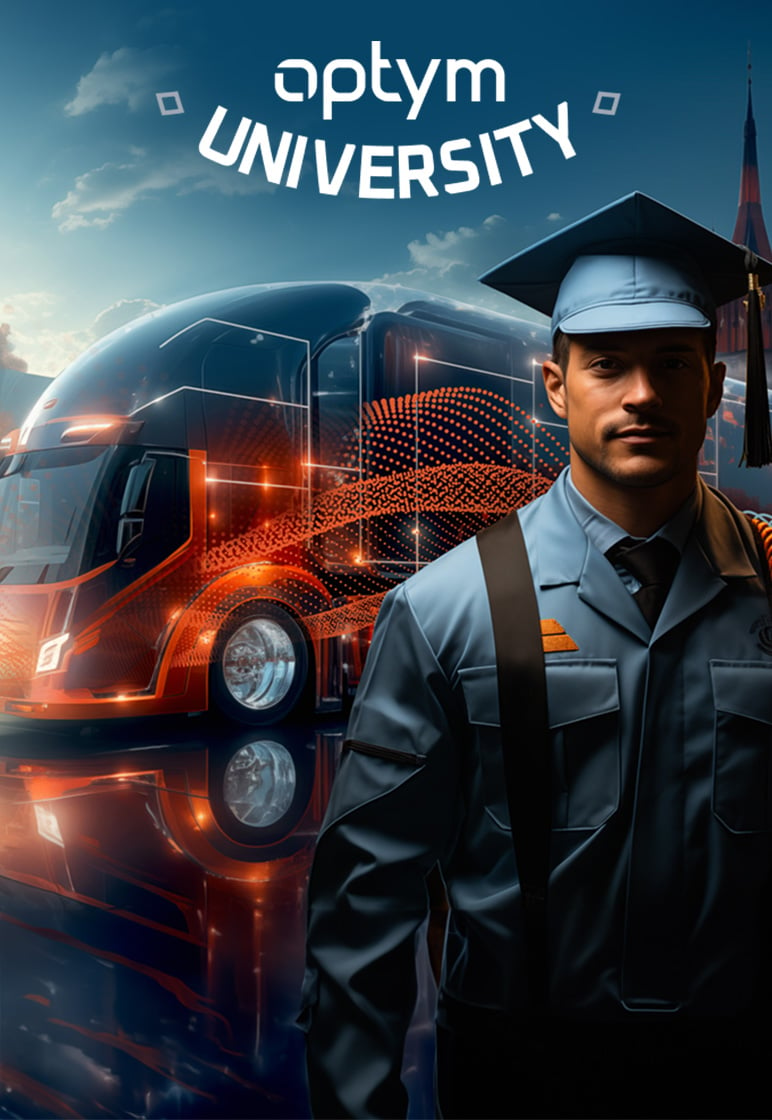
School is in session
Optym University provides an educational overview of optimization, network planning, and artificial intelligence with a focus on how these concepts can improve transportation and logistics.
About this episode:
Dive into the world of Optimization and Artificial Intelligence (AI) as we decipher their unique approaches to decision-making. While both share the goal of enhancing choices, they do so in distinct ways.
Explore the speed and efficiency of optimization algorithms, evaluating millions of decisions within seconds, surpassing human capabilities. Specialized algorithms like Mixed Integer Programming and dynamic programming are at the forefront of mathematical optimization.
At Optym, we're pioneering the integration of optimization into AI, transforming the transportation industry. Join our journey to "Optymize" transportation.
Video Transcript:
"Are Optimization and AI two sides of the same coin, or are they two entirely different concepts?"
The key to unraveling this question lies in their very definitions.
"Artificial intelligence is the simulation of human intelligence processes by machines, especially computer systems"- IBM.
Conversely, optimization is the scientific method of selecting the best possible decisions that honor operational constraints and maximize profitability.
Despite the nuances, they share a common goal - to enable machines to solve complex business challenges and make better decisions. However, they achieve this using different strategies.
An AI algorithm approaches decision-making by learning from past data and building the decision-making model. It takes several sets of inputs and corresponding decisions for those inputs. Using this information, it creates an AI model that will give the same conclusion for each data as given in the input data.
An AI model needs training; and if more input data and corresponding decisions are provided, the better the training. We hope that the training makes the AI model smart enough to handle all future real-world situations.
Popular algorithms that build such AI models are linear regression, decision tree, support vector machines, neural networks, etc.
On the other hand, an optimization model uses a different approach. It creates a "digital twin" of the current situation with each decision is defined as a mathematical variable. It determines how humans take decisions – what operational constraints they keep in mind, and what objectives they optimize. Then, it models each operational constraint and each objective as mathematical equations.
The brilliance of optimization algorithms lies in their ability to evaluate millions of potential decisions within a matter of seconds or minutes and recommend the best decisions. Even the most capable human minds would falter at this task, but optimization algorithms thrive.
This mathematical optimization problem is solved using some specialized algorithms, such as, mixed integer programming (MIP), dynamic programming, network optimization, neighborhood search, heuristics, etc. We will be diving deeper into these in future videos.
Let's illustrate how these two different algorithms will solve a common problem faced by trucking companies – assigning loads to drivers and creating routes for them. An AI algorithm will train the AI model using numerous situations in the past and what decisions were made by dispatchers.
But optimization will build a mathematical model capturing how dispatchers decide, what operations constraints are taken into account, and what objectives carriers really care about. Both models take decisions, but the algorithms used for decision-making are different.
It is clear that AI and optimization have strong similarities. They both empower machines to unravel business conundrums and make intelligent decisions similar to a human brain.
AI typically mimics human decision-making, while optimization surpasses human capabilities. Stay tuned for our upcoming video where we explore how optimization surpasses the abilities of the human mind.
While optimization is a specific type of AI, it is less recognized and is yet to become the mainstream in the AI world.
However, its untapped potential is immense, waiting to be harnessed by AI researchers.
At Optym, we're striving to bring this lesser-known facet of AI to the forefront, developing groundbreaking solutions for the transportation industry.
We invite you to join us in our quest to "Optymize" the world of transportation.